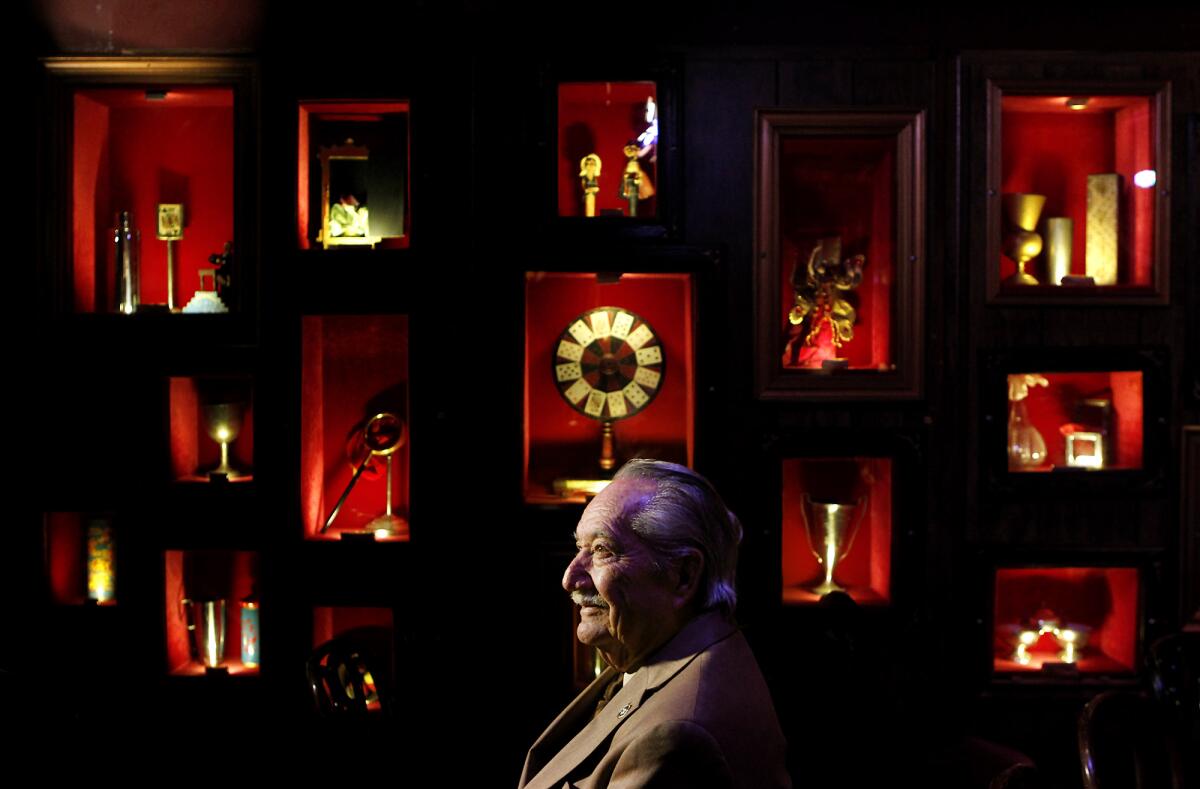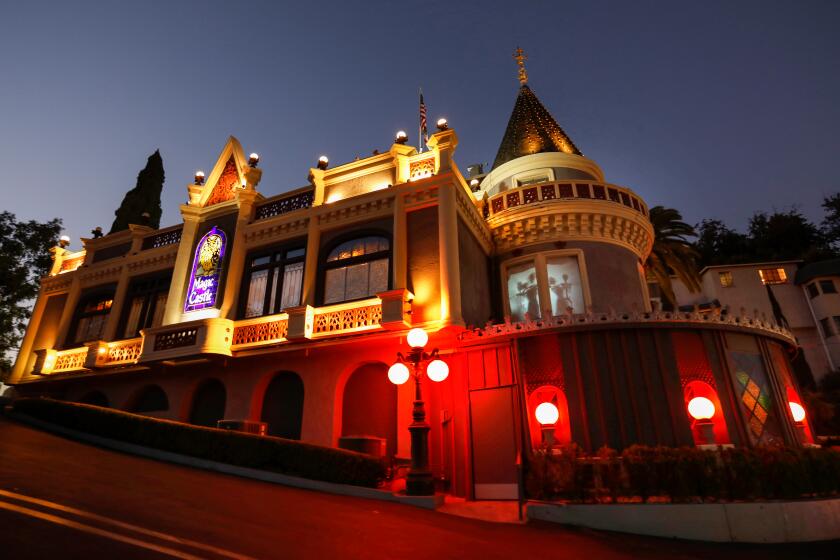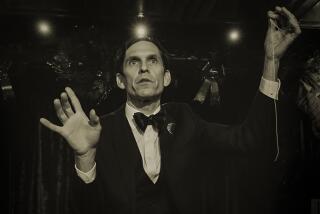Milton Larsen, co-founder of Hollywood’s Magic Castle, dead at 92

Milton Larsen, who as co-founder of the Magic Castle transformed a falling-down Hollywood mansion into an iconic private club that attracted top magicians and their fans from around the world, died Sunday. He was 92.
Larsen passed away in his sleep in an apartment a short walk from the Franklin Avenue landmark, according to his niece, Erika. The cause of death was not known, she said.
A gaming entrepreneur purchased the property last year, but Larsen continued to be a frequent and beloved presence at the clubhouse. After an awards show Thursday marking the 60th anniversary of the club, he stayed at the bar “until the wee hours,” his niece said.
Larsen spent decades in television as what he called “a gag writer” for shows including “Truth or Consequences,” and it was from the window of a TV studio on Hollywood Boulevard and Highland Avenue that he first spotted the turreted residence that would become the Magic Castle.
A financier had constructed the Edwardian-style manor house with French and Gothic elements in 1908, but it had fallen into disrepair by the 1950s, with shutters dangling and a yard overcome with weeds. Larsen tracked down the owner.
“I told him about this crazy idea of turning it into a club for magicians,” he recalled in a 2017 interview with the Washington Times.
In interviews with The Times, 12 people accused Magic Castle management, performers and others of abuses, as the legendary Hollywood club dedicated to the craft of magical performance wrestles with allegations and membership unrest.
Larsen was born into a family of magicians in Pasadena in 1931. His father, William, was an attorney who once represented Harry Houdini’s widow and left the law to practice magic. His mother, Geraldine, had a children’s show on KTLA called “The Magic Lady.”
“Everybody I knew when I was a kid was in the business,” Larsen recalled decades later.
The couple and their children starred in a Vaudeville revue, “Larsen Family of Magicians,” and his father often spoke of opening a club for magicians. After his death, Larsen, his brother, William Jr., and his sister-in-law, Irene, saw a chance to realize that dream.
The club they launched Jan. 2, 1963, offered free membership into what they called the Academy of Magical Arts to subscribers to the magic magazine Genii. The academy is now a nonprofit with its headquarters at the Magic Castle and more than 6,000 members from 40 countries.
The club attracted those who could perform, those who preferred to watch and celebrities including Cary Grant, Muhammad Ali, Johnny Depp and Ryan Gosling. All who visited were treated to the property’s unique decor — stained glass windows, secret passageways, urinals that talked — and strict dress code that required coats and ties for men.
“Every year at the board meeting they have a chance to change the rules, but everybody likes the rules,” Larsen told The Times in 2013.
Change did come to the club in recent years. After a 2020 Times investigation detailed allegations of sexual harassment, groping and racism at the Magic Castle, the nonprofit overhauled its board. Video game mogul Randy Pitchford, a magic enthusiast and club member, bought the club in April 2022 and installed Erika Larsen as president.
At the awards ceremony last week, Milton Larsen “got a thunderous standing ovation. …This was a man who had a life full up to the very last minute,” said Michael Albright, the Magic Castle’s creative director.
In addition to his niece, Larsen, a part-time resident of Montecito, is survived by his wife, Arlene, and his nephew, Dante.
Larsen was frequently asked whether the type of old-fashioned, small-audience live shows practiced at his club could survive in an age of celebrity performers with highly produced television specials. He was adamant.
“There’s something about seeing a magician live,” he told The Times, adding: “As long as there are people to be fooled, there will be magicians to fool them.”
More to Read
Sign up for Essential California
The most important California stories and recommendations in your inbox every morning.
You may occasionally receive promotional content from the Los Angeles Times.











